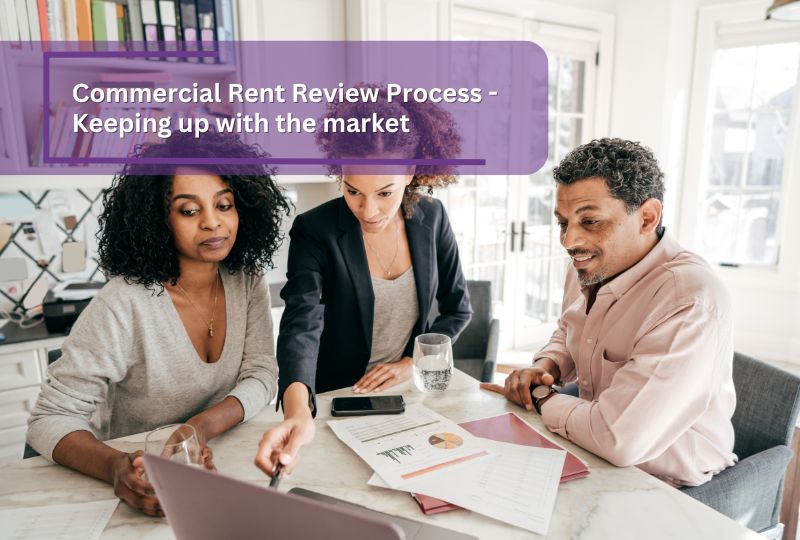Moving house in Scotland involves more than changing your address. It is a legal and financial transfer of responsibility for essential services that keep a home running. Whether you want to rent a flat, buy a house, or relocate, you must transfer or set up utilities in your name as soon as you take possession.
Failing to act quickly can leave you paying high default tariffs, facing delays in supply, or even receiving bills based on the previous occupant’s usage. The process in Scotland also differs slightly from the rest of the UK, particularly with water supply handled solely by Scottish Water and billing often tied to your council tax.
This guide takes you through every step, from switching energy suppliers as a tenant to understanding water charges, setting up broadband, and managing costs in a shared property. Whether you’re renting for the first time or moving from another Scottish address, you’ll learn how to get connected quickly, stay within budget, and make the most of your rights under Scottish tenancy law.
Understanding Utilities in Scotland
Utilities in Scotland cover several core services: electricity, gas, water, broadband or phone connections, and council tax. While some are open to market competition, meaning you can shop around for better prices, others are fixed by law or local authority control.
Electricity and gas are supplied by companies like ScottishPower. You can freely choose your supplier if you are the account holder, and switching is straightforward under the Energy Switch Guarantee. Water supply, however, is handled exclusively by Scottish Water, which operates as a publicly owned utility. For most households, charges for water and sewerage are collected by your local council alongside council tax payments.
Broadband and telephone services are entirely market-based, but rural coverage varies, which can affect your available options. Council tax is a legal charge imposed by local authorities, calculated according to your property’s valuation band and payable by residents unless exemptions apply.
In all cases, responsibility depends on whose name is on the bill. If your landlord includes utilities in the rent, they manage the accounts. If your name is listed, you are legally obliged to set them up and pay for them from the date your tenancy begins.
Can You Switch Energy Supplier If You’re Renting?
Yes. In Scotland, tenants who pay their utility bills have the legal right to choose or switch their energy supplier. This right is protected by Ofgem’s rules and applies regardless of whether you are in a fixed-term tenancy or on a month-to-month contract.
The key factor is whose name is on the energy account. If you are the account holder, you control the supplier choice. Your landlord cannot legally prevent you from switching unless the energy bills are included in your rent, and they remain the named account holder.
Some tenancy agreements include clauses naming a preferred supplier. If you pay directly, such clauses can often be challenged as unfair under the Consumer Rights Act 2015. However, if the landlord is paying and recharging you, you are bound by their choice. It’s always advisable to check your tenancy agreement before initiating a switch to avoid disputes.
Can Tenants Get a Smart Meter in Scotland?
Yes, tenants can usually get a smart meter installed, provided they are the named account holder. In most cases, you don’t require formal landlord permission because the account is in your name, but informing them is courteous and may avoid misunderstandings.
Smart meters can make tracking your energy usage easier and allow for more accurate billing without manual meter readings. The latest SMETS2 models remain functional even if you switch suppliers, ensuring you can still take advantage of competitive tariffs.
If your property is listed or has restrictions due to conservation status, check with the supplier in case special installation permissions are needed.
How Long Does It Take to Switch Energy Suppliers?
Switching energy suppliers in Scotland typically takes between five and fifteen working days. This period includes a statutory fourteen-day cooling-off window in which you can cancel the switch without penalty.
Delays can occur if your account is in arrears, if there’s a mismatch in your address details, or if your current supplier objects to the switch due to debt. Providing an accurate opening meter reading and ensuring all your details match the records will help prevent delays.
In urgent cases, for example, if you are on a high out-of-contract tariff, you can sometimes request a faster switch, but this depends on the suppliers involved.
Step-by-Step Guide to Setting Up Gas and Electricity in a Rented Home
When you move into a rented property in Scotland, you become legally responsible for the gas and electricity from the date your tenancy begins, even if you haven’t contacted a supplier yet. Many tenants pay more than necessary in their first month simply because they don’t register promptly and end up on the supplier’s “deemed” or standard variable tariff, which is often the most expensive.
The process below ensures you avoid being charged for previous tenants’ usage, start paying the correct rate immediately, and meet your legal and safety obligations:
1. Take meter readings on move-in day
Locate both your gas and electricity meters (these may be inside the property, in communal areas, or outside in a meter box). Record the readings and keep a photo as proof. This protects you from being billed for energy used before you arrived.
2. Identify the current suppliers
You must first find out who currently supplies the property:
- Electricity: Use the Energy Networks Association search tool or contact your regional electricity distributor.
- Gas: Use the Find My Supplier or call the Meter Point Administration Service on 0870 608 1524 to get your MPRN (Meter Point Reference Number) and supplier details.
3. Register with the existing suppliers
Contact the suppliers immediately to tell them you have moved in. Provide your meter readings and move-in date so billing starts from that day. This ensures the account is in your name and prevents supply disconnection due to non-registration.
4. Compare tariffs and consider switching
Once you’re registered, you can shop around for cheaper tariffs. In Scotland, Ofgem-accredited comparison websites ensure impartial results. Switching is free, and your new supplier will handle the entire process so you won’t experience any disruption to your supply.
5. Set up a payment method
Direct debit payments usually offer the lowest rates. If you prefer more control, ask about pay-as-you-go options, though these often have higher unit costs.
6. Check for safety compliance
If your property has gas, your landlord must provide a valid Gas Safety Certificate (CP12) issued within the past 12 months. This is a legal requirement under the Gas Safety (Installation and Use) Regulations 1998.
7. Keep records of all correspondence
Save emails, letters, and meter readings for your records. If you later switch suppliers or dispute a bill, these will be essential for resolving issues quickly.
How to Set Up a Water Bill in Scotland
Scottish Water is the only domestic water provider, and most households are unmetered. This means charges are based on your council tax band rather than actual consumption. Your local council collects the payments alongside your council tax.
If you move into a property with a water meter, Scottish Water will bill you directly based on usage. Metered homes are less common in Scotland, but can be requested in some cases. You don’t need to notify Scottish Water separately, the council will update your account when you register for council tax.
Setting Up Broadband and Phone Services
Scotland’s broadband availability varies considerably between urban and rural areas. Cities and large towns often have multiple fibre providers, while rural communities may rely on slower copper-line broadband, 4G home internet, or satellite connections.
Installation lead times can range from two days to several weeks, especially in remote areas. Contact providers well before your move to ensure service is active when you arrive. For renters, short-term or no-contract broadband options can offer flexibility if your tenancy is not long-term.
Some Scottish Government initiatives, such as the R100 programme, aim to improve rural connectivity, so it’s worth checking your postcode for planned upgrades before committing to a provider.
Registering and Paying Council Tax
You must notify your local council as soon as you move in, providing your name, move-in date, and property address. Your bill will be calculated based on your property’s valuation band, which is determined by its value as of 1 April 1991.
Payments can be made over ten or twelve months, with some councils offering additional flexibility for those on lower incomes. Discounts include 25% off for single occupancy, full exemption for students, and exemption for those with severe mental impairment.
Failing to register promptly can result in backdated bills and missed discount opportunities.
Managing Utilities in a Shared or Rented Property
In a joint tenancy, all tenants named on the agreement are equally responsible for paying utility bills. If one tenant leaves without paying, the remaining tenants can still be pursued for the full amount.
In houses where each tenant has a separate tenancy agreement, responsibility for bills may vary — some may be included in the rent, while others are shared between certain tenants. Written agreements on bill-splitting and payment dates help avoid disputes.
Apps such as Splitwise or Glide make tracking payments simpler and can send reminders to all housemates.
Understanding Your Tenancy Agreement and Utility Clauses
Your tenancy agreement will detail your responsibilities regarding utilities. Some agreements clearly state which utilities you must arrange and pay for, while others may include them in your rent.
Clauses that attempt to prevent you from switching suppliers may not be enforceable if you are the named account holder. If you believe a term is unfair, you can seek guidance from Citizens Advice Scotland or Rent Service Scotland.
Tips for Reducing Utility Costs in Scotland
Energy efficiency improvements such as LED lighting, draft-proofing, and upgrading heating controls can cut bills significantly. Home Energy Scotland provides free advice, grant assistance, and loans for improvements such as loft insulation and efficient boilers.
Regularly providing meter readings to your supplier prevents overcharging based on estimates, and reviewing tariffs annually ensures you are not stuck on expensive standard rates. Ofgem-approved comparison sites offer impartial and accurate pricing tailored to your postcode.
Conclusion
Moving house in Scotland requires more than unpacking boxes. It is about taking timely control of your essential services. From switching to competitive energy tariffs and registering for council tax to understanding Scottish Water’s unique billing and securing reliable broadband, each step ensures a smooth transition and avoids unnecessary costs. Tenants who act quickly, keep accurate records, and know their rights can save money, prevent disputes, and maintain uninterrupted service.
Moving house in Scotland requires more than unpacking boxes. It is about taking timely control of your essential services. From switching to competitive energy tariffs and registering for council tax to understanding Scottish Water’s unique billing and securing reliable broadband, each step ensures a smooth transition and avoids unnecessary costs. Landlords who act quickly, keep accurate records, and know how to handle tenant concerns effectively can prevent conflicts, maintain uninterrupted services, and protect their investment.
At Westport Property, we help movers manage this process with practical advice, supplier comparisons, and up-to-date knowledge of Scotland’s utility regulations. Whether you are settling into your first rented flat or relocating to a new home, our guidance ensures you get connected faster, pay fair rates, and stay compliant with all local requirements. With our support, you can focus on making your new place feel like home while we help you handle the details that keep it running.
Have A Question or Need Some Help?
Whether you're searching for the perfect rental property or a landlord wanting advice on letting, we're here to assist. Feel free to call our office or send us an email, and we'll be happy to help you with any queries you may have.
Frequently Asked Questions
What should I do if my energy supplier refuses to switch me after moving in?
If your supplier blocks a switch, it is usually due to unpaid debt or incorrect account details. Ask them to explain the reason in writing and confirm if the debt is valid. You can resolve the issue or challenge it through Ofgem’s complaints process to regain your right to switch.
How can I avoid paying for the previous tenant’s utility usage?
Take meter readings on move-in day and send them to the current supplier immediately. Include photos with timestamps as proof. This ensures your bills start from the correct date and usage, protecting you from overpayment disputes.
Can I set up utilities before I get the keys to my new property?
You can arrange accounts in advance, but suppliers will only activate billing from your official tenancy start date. Providing the move-in date and property details ahead of time can shorten the registration process. Always confirm meter readings once you take possession.
What if my property has no existing gas or electricity connection?
Contact the local electricity network operator or gas distribution company to arrange a new connection. Costs vary depending on the work required and location. It is best to start this process early, as installation can take several weeks.
How do I check if my broadband provider covers my new address?
Use the provider’s postcode checker on their website or Ofcom’s broadband availability tool. This will confirm available speeds, connection types, and installation times. Rural addresses may have fewer options, so compare multiple providers before committing.
Can I request a water meter installation in Scotland?
Yes, but approval depends on the property type and supply arrangements. Contact Scottish Water to discuss eligibility and the process. Metered billing can benefit smaller households that use less water than the average for their council tax band.
What if my landlord refuses to provide a Gas Safety Certificate?
It is a legal requirement for landlords to provide a valid certificate annually if the property has gas appliances. If they refuse, contact the Health and Safety Executive or your local council’s environmental health team. They can enforce compliance to ensure your safety.



 Find a Property Sale/Rent
Find a Property Sale/Rent  Letting Agents
Letting Agents  Asset Management
Asset Management 






